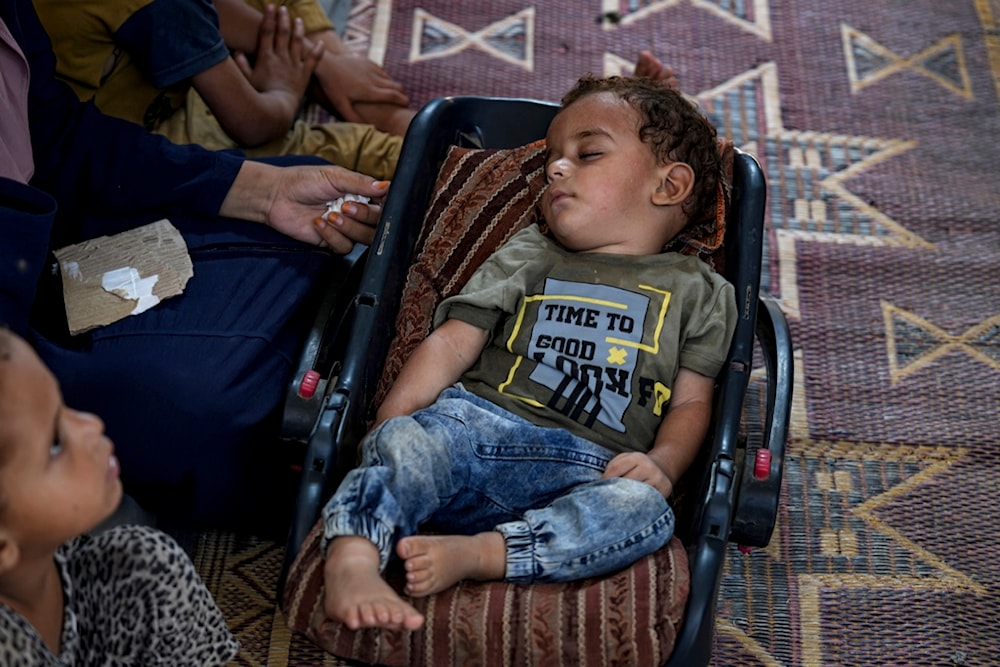Netanyahu denies Gaza vaccine 'pause', merely 'allocating' places
Israeli occupation Prime Minister Benjamin Netanyahu denies media reports of a fighting pause for polio vaccinations, stating instead that only specific areas in Gaza were designated, prompting Palestinians to mock the US and "Israel's" handling of the situation.
-

Displaced infant Abdel-Rahman Abu El-Jedian, who suffers from polio, sleeps at a makeshift tent camp in Deir al-Balah, central Gaza Strip, Palestine, August 27, 2024. (AP)
Israeli Prime Minister Benjamin Netanyahu rejected, in a statement, the claims made by the media citing a senior US State Department official that "Israel" agreed to a "pause in the fighting in order to administer polio vaccines."
Netanyahu insisted on reaffirming that the Israeli occupation's security cabinet has rather only agreed on the "allocation of certain places in the Gaza Strip."
In response, some Palestinians in the Gaza Strip mocked the US and its international efforts, saying that "Israel" and the US are afraid Palestinian children would be bombarded to death unvaccinated.
This highlights the gap between the international community's portrayal of its efforts as successes and its actual failure to ensure Palestinians in the Gaza Strip and across occupied Palestine are granted their basic rights.
First case of poliovirus reported in 10-month-old infant south Gaza
Earlier, on August 17, the Health Ministry in Gaza reported the first incidence of poliovirus in the Gaza Strip's southern governorates.
According to a press statement, the instance involves a 10-month-old infant who has not received any vaccination for polio in the city of Deir al-Balah after the newborn exhibited symptoms identical to those of polio as suspected by doctors. Tests in Amman indicated that the infant had contracted a type of vaccine-derived poliovirus (VDPV).
The Ministry confirmed that it would launch a critical polio vaccination campaign in the coming days aimed at children under the age of ten, noting that 1,200,000 type 2 polio vaccine doses had been secured in collaboration with the United Nations Children's Fund (UNICEF).
Work is underway to secure an additional 400,000 doses, it maintained.
It further stressed, however, that the Strip is facing a severe health crisis due to the ongoing Israeli aggression, which has led to a lack of basic hygiene, sanitation, and clean drinking water. This has created conditions conducive to the spread of epidemics, including water-borne diseases like VDPV. The situation has resulted in waste accumulation on streets and around shelters, further exacerbating the health risks.
The international community and health organizations are being urged to intervene urgently to stop the aggression and address the immediate healthcare needs of Gaza's population. International bodies are also called to take action to restore safe water and wastewater systems, manage waste disposal, ensure fuel for water pumping, and facilitate the unrestricted entry of medical and hygiene supplies into the Strip.
Read more: Gaza Resistance fighters deal Israeli casualties; killing two

 3 Min Read
3 Min Read








